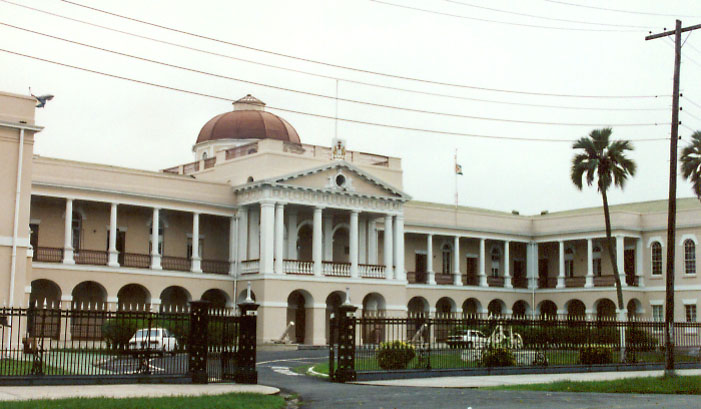The government of Guyana should address serious concerns raised by local media groups over pending amendments to the country’s broadcast law, the International Press Institute (IPI) said today.
Local critics say the amendments, passed on Friday by Guyana’s National Assembly and now awaiting the signature of President David A. Granger, grant the state “unwarranted” power to manage the programming of radio and television stations by allocating time slots for public service programming dictated by the government.
In a joint statement last week before the bill was passed, a group of private Guyanese broadcasters called for debate to be deferred, describing the planned public service programme requirement as an “infringement on the freedom to determine broadcast content”.
That view was echoed by the Guyana Press Association (GPA), which told IPI in a statement that it condemned the planned changes and would work with international groups to “convince the government of the need to halt or reverse this process given the severe consequences these amendments pose to freedom of the press and the commercial viability of private radio and television stations”.
IPI Director of Advocacy and Communications Steven M. Ellis urged the Guyanese government to address criticism regarding the amendments before they become law.
“We are troubled that this bill appears to have been drafted and passed without time for sufficient consultation with all relevant stakeholders, including Guyana’s private broadcasters and local civil society groups,” Ellis said. “Elements of this legislation – in particular provisions related to the broadcasting of public service content – also raise questions about the government’s commitment to ensuring that Guyanese radio and television stations can operate independently from state and political control. We urge lawmakers to address those questions and revise these amendments as necessary.”
Tabled early last week by Prime Minister Moses Nagamootoo, the amendments include a provision requiring private broadcasters to allocate, free of charge, up to 60 minutes of public service programming daily. Additionally, the law would require all current broadcast license holders to reapply within 30 days or lose their right to broadcast.
While the GPA said it agreed that private broadcasters should play a role during emergencies and disasters, it highlighted the fact that the amendment would give authorities the ability to dictate time slots if they did not agree with the ones allocated by stations. Furthermore, the new legislation leaves the frequency and content of public service announcements to the discretion of the government.
The changes define a public service broadcast as “the broadcast of a programme produced for the purpose of informing and educating the public, and promoting policies and activities of the Government that benefit the public as a whole”.
The broadcasts, which also include time for presidential addresses and disaster warnings, are to be allocated between 6:00 a.m. and 10:00 p.m.
GPA told IPI the bill “will disrupt and violate contractual obligations that stations will have with advertisers and programme sponsors”, adding that it “strongly objects to the Guyana government seeking to redefine what constitutes public service programmes”.
Anand Persaud, editor-in-chief of the daily Stabroek News, told IPI that mandating the airing of what the government considers to be public service programming “unconscionably limits the freedom of operation” of private broadcasters, who have to pay broadcasting fees.
“The content of the public service programmes will invariably be political,” he commented. “It is a clear attempt by the government to promote itself.”
Opposition lawmakers in Guyana have slammed the amendments. Former President Bharrat Jagdeo, now leader of the opposition People’s Progressive Party (PPP), dubbed the changes “a threat to press freedom” and said they would force broadcasters to air government propaganda. On Friday, PPP MP Gail Teixeira described the bill as “reckless, undemocratic in content, and an infringement on the rights of people”.
Prime Minister Nagamootoo defended the bill, insisting that it did not restrict press freedom but rather “lends clarity and certainty” to the powers granted to Guyana’s National Broadcasting Authority (NBA), a body established by the Broadcasting Act of 2011.
Concerns over broadcasting freedom in Guyana are not new. The Guyanese government exercised a complete radio monopoly until 2011, and critical television broadcasters were consistently denied broadcast licenses during much of the PPP’s 23-year rule from 1992 to 2015. During a 2013 visit to Guyana, IPI urged the government to ensure that the granting of television and radio licenses under the newly introduced Broadcasting Act be conducted in a transparent and impartial manner.



